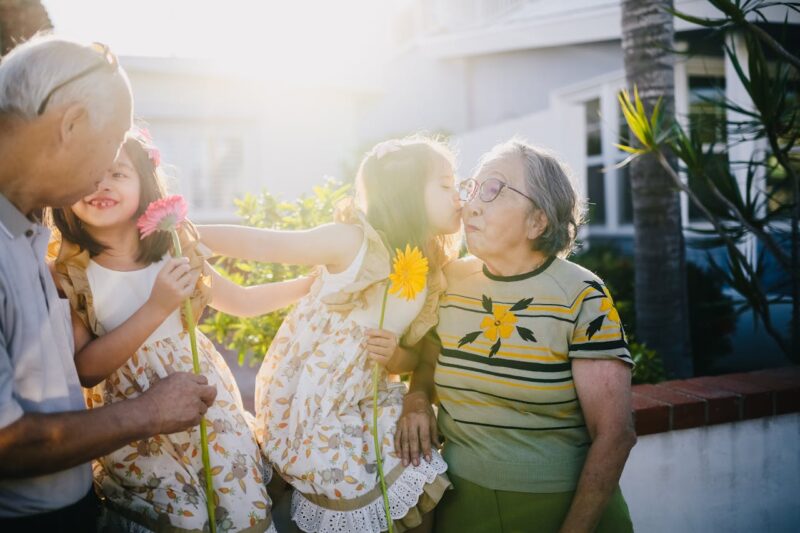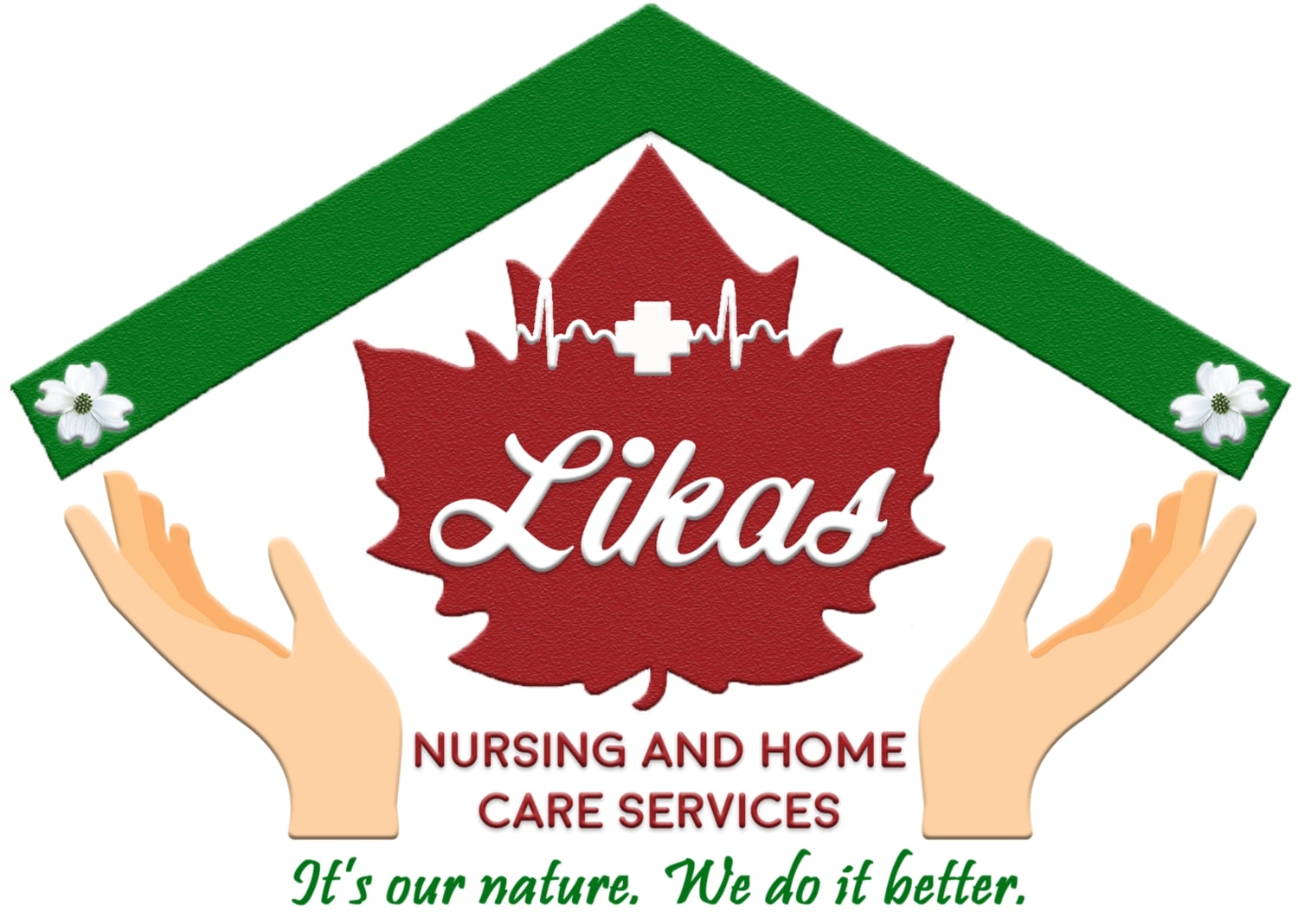
Depression among the elderly is a serious issue that has been overlooked for too long. As people age, they often face loneliness, loss, and health challenges, which can lead to feelings of sadness. Understanding how to help elderly individuals with depression is crucial in today’s society.
Simple actions can make a big difference. Regular check-ins, engaging them in social activities, and encouraging professional help are effective strategies. Providing emotional support and fostering connections with family and friends can uplift their spirits. This guide will explore practical steps you can take to support elderly loved ones battling depression, ensuring they feel valued and cared for.
Understanding Depression in Older Adults
Definition of Depression
Depression is a serious mental health condition. It affects how a person feels, thinks, and handles daily activities. For older adults, depression can manifest differently than in younger populations. Symptoms may include sadness, fatigue, and loss of interest in activities. Some elderly individuals might also show irritability or confusion. These signs can often be mistaken for normal aging or other health issues.
Physical Health Impact
Physical health problems significantly affect the mental well-being of seniors. Conditions such as chronic pain, heart disease, and diabetes can lead to feelings of helplessness. Medications for these conditions may also contribute to elderly depression. The combination of physical ailments and emotional distress can create a cycle that worsens both mental and physical health.
Older adults may withdraw from social interactions due to their physical limitations. This isolation can lead to increased feelings of loneliness and depression. Many seniors do not seek help because they believe their situation is hopeless or that they should simply accept it as part of aging.
Misconceptions About Aging
Many people mistakenly believe that depression is a normal part of aging. This misconception prevents many elderly individuals from getting the help they need. Depression is not something that should be accepted as inevitable with age. Recognizing this can lead to better outcomes for depressed seniors.
Awareness about postmenopausal depression is also crucial. Hormonal changes during menopause can trigger depressive symptoms in older women. Understanding these unique factors helps caregivers provide appropriate support.
Importance of Support Groups
Joining a depression support group can be beneficial for seniors facing mental decline. These groups offer understanding and shared experiences among peers. They create a safe space where older adults can express their feelings without judgment.
Support groups also provide valuable resources and coping strategies. Members learn how to manage their symptoms together. This community aspect fosters connection and combats feelings of isolation.
Powerful Treatments Available
Effective treatments exist for elderly depression. Options include therapy, medication, and lifestyle changes. Cognitive-behavioral therapy has shown promising results in treating depressed seniors. Medication can also alleviate symptoms but must be managed carefully due to potential side effects.
Engaging in regular physical activity can boost mood and improve overall health. Encouraging seniors to stay active socially and physically enhances their quality of life.
Recognizing Signs of Depression
Behavioral Changes
Changes in behavior can signal depression symptoms in elderly individuals. Many may withdraw from social activities they once enjoyed. Hobbies that brought joy might now seem uninteresting. This withdrawal often leads to increased isolation. Friends and family may notice a decline in participation at gatherings or events.
A person experiencing depression may also display changes in routine. For example, they might stop going out for walks or skip regular visits with friends. Such changes can indicate a deeper issue, like clinical depression. It’s crucial to pay attention to these signs.

Physical Symptoms
Physical symptoms often accompany depressive disorders. Fatigue is a common complaint among those who experience depression. Even simple tasks can feel overwhelming. Changes in sleep patterns are also frequent. Some may sleep too much, while others struggle to find rest.
Unexplained aches and pains can arise as well. These physical manifestations might not have any clear medical cause. They can contribute to feelings of hopelessness and despair. Understanding these symptoms helps caregivers recognize when someone needs support.
Emotional Indicators
Emotional indicators are vital in identifying depression. Persistent sadness is a hallmark of this mental health condition. It may be accompanied by irritability or anger over small matters. Individuals experiencing severe depression often feel a sense of emptiness or hopelessness.
Feelings of loneliness can deepen during this time. Many elderly people battle grief from losing loved ones or friends. This grief can morph into more serious issues if left untreated. Recognizing these emotional signs is essential for timely intervention.
Common Symptoms
Common symptoms of depression include a mix of behavioral, physical, and emotional signs. Depressed people may show:
Withdrawal from loved ones
Loss of interest in activities
Fatigue or low energy
Changes in appetite or weight
Sleep disturbances
Feelings of worthlessness
Being aware of these symptoms allows families to act quickly. Early recognition can lead to effective depression treatment options.
Importance of Recognition
Recognizing these signs is the first step toward helping elderly individuals with depression. It allows caregivers and family members to approach the situation with understanding and empathy. Acknowledging the presence of these symptoms opens the door for conversations about feelings and experiences.
Supportive dialogue encourages those suffering from depressive disorders to seek help. Offering reassurance and companionship can make a significant difference in their lives.
Causes and Risk Factors
Chronic Illnesses
Chronic illnesses often lead to depressive symptoms in the elderly. Conditions like diabetes, heart disease, and arthritis can cause physical pain. This pain can make daily activities difficult. As a result, feelings of helplessness may arise.
Medications for these illnesses can also contribute. Some drugs have side effects that include mood changes. For instance, certain blood pressure medications may lead to fatigue or sadness. Understanding this connection is crucial for caregivers.
Life Changes
Significant life changes can greatly affect mental health. The loss of a loved one is a common situation that triggers depression. Grieving can be overwhelming, especially for older adults who may already feel isolated.
Retirement is another major transition. While some view it as a time for relaxation, others struggle with the loss of routine and purpose. These changes can shift an individual’s identity and lead to feelings of worthlessness.
Social Isolation
ial isolation plays a key role in elderly depression. Many older adults live alone, which increases their risk of feeling lonely. Lack of interaction can worsen depressive symptoms.
Support systems are vital for mental health. Friends and family provide emotional support and companionship. Without these connections, elderly individuals may feel abandoned. This isolation can amplify feelings of sadness and despair.
Summary of Risk Factors
Understanding the causes and risk factors is essential for helping the elderly cope with depression. Here are some key points:
Chronic illnesses increase vulnerability to depression.
Medications may have side effects that impact mood.
Life changes, such as loss or retirement, can trigger depressive episodes.
Social isolation leads to loneliness and worsens mental health.
Recognizing these factors allows caregivers to take proactive steps. Providing emotional support, encouraging social engagement, and managing medical conditions can help alleviate symptoms.
Practical Tips for Family Caregivers
Open Communication
Many family caregivers struggle with how to approach their elderly parent about feelings of sadness. Creating a safe space is crucial. Encourage open dialogue where the elderly can express their thoughts without fear of judgment. Ask simple questions about their day or feelings. Listen actively and validate their emotions. This helps build trust and encourages more sharing.
Family caregivers should also be aware of non-verbal cues. Body language can reveal a lot about how someone feels. A caregiver’s presence can make a significant difference. Regular conversations can help identify changes in mood or behavior early on.
Establish Routine
Establishing a daily routine can provide structure for an elderly parent. Predictability often brings comfort. Many elderly individuals thrive when they know what to expect each day. Set specific times for meals, activities, and rest. This helps create a sense of normalcy in their life.
Incorporate enjoyable activities into the routine. Simple pleasures like reading, gardening, or listening to music can uplift spirits. Family caregivers can also involve the elderly in planning these activities. This inclusion fosters a sense of control and engagement.
Medication Monitoring
Medication adherence is vital for managing depression in the elderly. Caregivers should monitor whether their loved one takes medications as prescribed. Missing doses can lead to mood swings or worsening symptoms.
Be attentive to any side effects that may affect mood. Some medications have common side effects like fatigue or irritability. Discuss these concerns with healthcare providers if necessary. Adjustments may be needed to improve overall well-being.
Caregiver Support Groups
Caregiving can be overwhelming at times. Many family caregivers benefit from joining caregiver support groups. These groups offer a place to share experiences and gain insights from others facing similar challenges.
Support groups provide emotional relief and practical tips for caregiving. They often discuss effective strategies for dealing with depression in elderly parents. Connecting with others can reduce feelings of isolation among caregivers.
Engage the Family
Engaging the entire family is essential in supporting an elderly parent with depression. Regular family gatherings can boost morale and foster connections. Encourage everyone to participate in activities together.
A combination of efforts from all family members strengthens support networks for the elderly parent. This collective involvement creates a more positive environment at home.
Encouraging Social Engagement
Community Activities
Promoting participation in community activities is vital for elderly individuals. Many communities offer clubs specifically for seniors. These clubs provide a space to meet others and engage in supportive activities.
Activities can include arts and crafts, book clubs, or fitness classes. Joining these groups helps combat disengagement. It also fosters a sense of belonging. For example, Kendra, an 80-year-old woman, found joy in a local gardening club. She made new friends while cultivating plants. This connection improved her mental health significantly.
Family Gatherings
Regular family gatherings are essential as well. Organizing events like dinners or game nights can reduce feelings of loneliness. These gatherings allow elderly family members to connect with loved ones. They can share stories and enjoy each other’s company.
Encouraging conversations during these gatherings is crucial. Families should create a warm environment for open dialogue. This helps elderly individuals feel valued and heard. They often cherish the time spent with family. Such interactions can uplift their spirits and encourage emotional support.
Volunteer Opportunities
Advocating for volunteer opportunities is another effective strategy. Many seniors want to contribute to their communities but may feel unsure how to start. Organizations often seek volunteers for various tasks, such as tutoring or assisting at food banks.
Volunteering provides a sense of purpose. It allows elderly individuals to use their skills and knowledge. Feeling needed enhances their self-worth and combats feelings of depression. For instance, a retired teacher might volunteer at a local school, helping children read.
Connection with Others
Building connections with others is paramount for mental health. Seniors should be encouraged to reach out to friends or neighbors regularly. Simple gestures like phone calls or coffee dates can make a significant difference.
Creating opportunities for conversation helps maintain relationships. Engaging in meaningful discussions can lift spirits and reduce isolation. Some seniors may need reminders about the importance of these connections.
Support Systems
Establishing strong support systems is key in this process. Family members, friends, and community resources should work together to support the elderly. Regular check-ins can ensure they feel connected and cared for.
Support groups tailored for seniors can also be beneficial. These groups provide a safe space for sharing experiences and feelings about depression. Participants often find comfort in knowing they are not alone in their struggles.
Treatment Options Available
Therapy Types
Various treatment options exist for elderly individuals facing depression. Psychotherapy is one of the most common methods. Cognitive-behavioral therapy (CBT) helps patients change negative thought patterns. This technique can be effective in reducing depressive symptoms.
Group therapy also offers support. It allows seniors to share experiences with peers. This interaction can foster a sense of community and reduce feelings of isolation. Many find comfort in knowing others face similar challenges.
Alternative Therapies
Alternative therapies can provide additional benefits. Mindfulness practices help individuals focus on the present moment. Research shows that mindfulness can reduce anxiety and improve overall mood.
Yoga is another option worth considering. It combines physical activity with mental relaxation. Studies indicate that yoga can alleviate symptoms of depression in older adults. Engaging in these activities may enhance emotional well-being.
Personalized Treatment Plans
Creating a mental health treatment plan tailored to individual needs is crucial. Each person’s experience with depression varies significantly. Some may respond better to medication, while others might benefit more from therapy.
Consulting a healthcare professional is essential when seeking mental health treatment. They can assess the individual’s situation and recommend appropriate treatments. Regular follow-ups ensure the chosen approach remains effective.
Medication Options
Medication can be an effective depression treatment option for some seniors. Antidepressants are commonly prescribed to manage symptoms. These medications work by balancing chemicals in the brain.
It’s important to monitor any side effects closely. Older adults may react differently to medications compared to younger individuals. A healthcare provider should adjust dosages as necessary.
Outpatient Services
Outpatient psychotherapy serves as another valuable resource. This option allows seniors to attend therapy sessions without being hospitalized. It provides flexibility while ensuring they receive the needed support.
Therapists often employ various techniques during sessions. These may include talk therapy, art therapy, or music therapy, depending on the patient’s preferences and needs.

Resources for Support
Several services and resources are available for seniors dealing with depression. Community centers often offer mental health workshops and support groups. Local organizations may also provide access to therapists specializing in geriatric care.
Family members play a vital role in encouraging their loved ones to seek help. Open discussions about feelings can make a significant difference in their willingness to pursue treatment options.
Lifestyle Changes for Better Mood
Physical Activity
Incorporating physical activity into daily routines is crucial. Regular exercise boosts endorphins, which enhance mood. Activities like walking, swimming, or dancing can be enjoyable. They also provide a sense of achievement. Aim for at least 30 minutes of physical activity most days.
Group exercises can also be beneficial. Joining a class encourages social interaction. This reduces feelings of isolation often felt by the elderly. Engaging in physical activities together fosters connections and support.
Balanced Diet
Maintaining a balanced diet plays a significant role in mental health. A diet rich in nutrients supports overall well-being. Foods high in omega-3 fatty acids, such as fish and walnuts, can improve mood. Fruits and vegetables provide essential vitamins that help combat depression.
Encouraging hydration is also important. Drinking enough water can affect energy levels and concentration. Limit processed foods and sugar intake to avoid mood swings. A good idea is to plan meals together with family members or caregivers. This creates opportunities for socializing while ensuring proper nutrition.
Relaxation Techniques
Practicing relaxation techniques can greatly benefit mental health. Techniques like meditation or deep-breathing exercises reduce stress and anxiety. These methods promote mindfulness, helping individuals focus on the present moment.
Setting aside time each day for relaxation is essential. Short sessions of 10 to 15 minutes can make a difference. Guided meditations are available through apps or online resources, making it easy to start.
Creating a calm environment enhances relaxation efforts. Soft music, comfortable seating, and low lighting can help set the mood. Encourage participation in classes focused on relaxation techniques. These classes often provide community support that fosters bonds among participants.
Behavioral Therapy
Behavioral therapy offers another approach to improving mood. This type of therapy focuses on changing negative thought patterns. It helps individuals understand their feelings better and develop coping strategies.
Talk therapy is an effective option for many elderly individuals. It provides a safe space to discuss unhappy life events and emotions with a trained professional. Regular sessions can lead to significant improvements in mental health over time.
Support from family and friends during this process is vital. Encouragement to attend therapy sessions reinforces commitment to mental well-being.
Importance of Professional Help
Counseling
Seeking counseling is vital for elderly individuals facing depression. Mental health professionals can provide accurate diagnoses. They understand the complexities of mental health problems, especially in older adults. A trained therapist or counselor can create a tailored treatment plan. This plan often includes therapy sessions and coping strategies.
Therapists help patients explore their feelings. They guide them through difficult life situations. Sharing experiences with a professional can bring relief. It allows the person to express emotions they may not feel comfortable sharing elsewhere. Regular counseling sessions can lead to significant improvements in mood and overall well-being.
Support System
A strong support system enhances recovery from depression. Family and friends play essential roles in this process. However, professional support is equally important. Engaging with therapists provides ongoing encouragement and understanding.
Support groups can also be beneficial. These groups connect individuals experiencing similar issues. Sharing stories within a group fosters a sense of community. It helps combat loneliness, which is common among the elderly. When people realize they are not alone, it can boost their morale.
Mental Health Services
Accessing mental health services is crucial for those struggling with depression. Many communities offer resources specifically for seniors. These services may include hotlines, counseling centers, and outreach programs.
Elderly individuals might hesitate to seek help due to stigma or fear. It’s essential to emphasize that reaching out is a sign of strength. Recognizing the need for assistance shows good sense and courage.
Professional help often leads to better outcomes than self-help methods alone. Therapists can identify underlying issues contributing to depression, such as loss or chronic pain. They provide tools to address these problems effectively.
Overcoming Barriers
Barriers exist that prevent seniors from seeking help. Some may lack energy or motivation due to their mental state. Others might feel isolated or believe no one understands their struggles.
Addressing these barriers is necessary for recovery. Encouragement from family members can make a difference. A simple call to a mental health service can initiate change. Understanding that it’s okay to ask for help is crucial.
Recovery Journey
The journey towards recovery from depression takes time and effort. Each step counts, whether it’s attending therapy or participating in support groups. Progress may be slow, but every small victory matters.
With the right support and professional guidance, individuals can regain control over their lives. They can learn how to manage their feelings and improve their situation.
Summary
Helping elderly loved ones with depression is crucial for their well-being. You’ve learned about understanding depression, recognizing its signs, and the causes behind it. Practical tips for caregivers, fostering social engagement, and exploring treatment options can make a real difference. Lifestyle changes also play a vital role in boosting their mood.
Your support can transform their lives. Encourage open conversations about feelings and seek professional help when needed. The journey might be tough, but your involvement is key. Don’t wait; take action today to uplift those who matter most to you. Together, you can create a brighter future for them.
Frequently Asked Questions
How can I tell if an elderly person is depressed?
Look for signs such as persistent sadness, withdrawal from social activities, changes in appetite or sleep patterns, and a lack of interest in hobbies. Observing these behaviors can help identify depression.
What are common causes of depression in older adults?
Depression in seniors can stem from various factors, including chronic illness, loss of loved ones, isolation, and major life changes. Understanding these causes is crucial for effective support.
How can family caregivers support an elderly person with depression?
Family caregivers can provide emotional support, encourage social interaction, and help maintain routines. Being patient and understanding their feelings can significantly improve their mood.
What treatment options are available for elderly depression?
Treatment options include therapy, medication, and lifestyle changes. Consulting a healthcare professional is essential to determine the best approach tailored to the individual’s needs.
Why is social engagement important for seniors with depression?
ial engagement helps combat loneliness and provides emotional support. Regular interaction with friends and family can boost mood and promote a sense of belonging.
What lifestyle changes can improve mood in the elderly?
Encouraging regular exercise, a balanced diet, and sufficient sleep can greatly enhance mood. Small changes like daily walks or healthy meals can make a difference.
When should I seek professional help for an elderly loved one?
If symptoms persist or worsen despite your support, it’s time to consult a mental health professional. Early intervention can lead to better outcomes for those struggling with depression.



